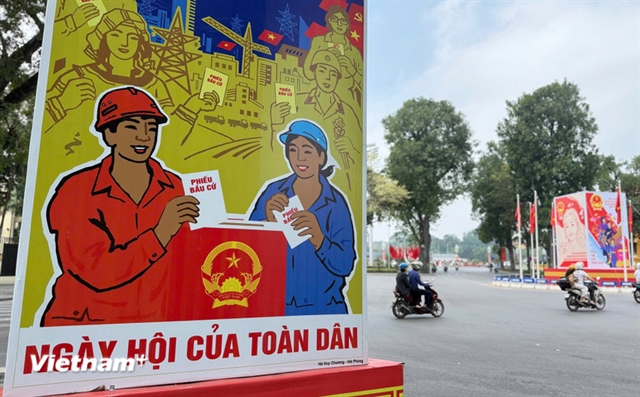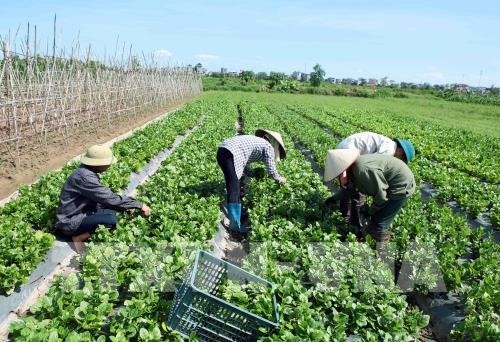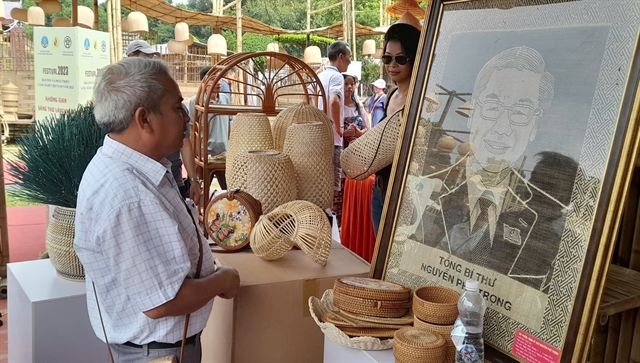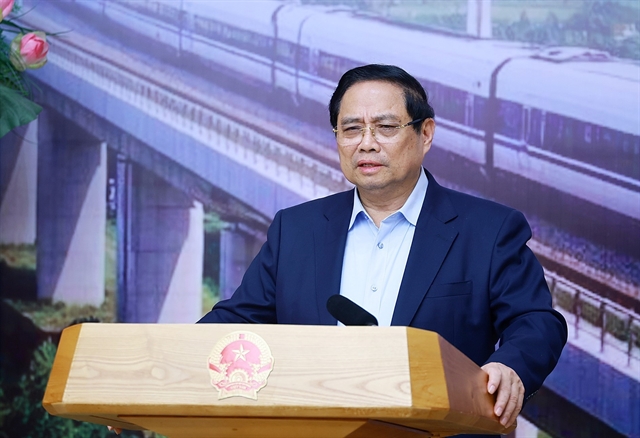 Society
Society

The HCM City Farmers Association targets increasing farmers’ average income to VNĐ65 million (US$2,900) by 2023, up from VNĐ49 million last year.
 |
| The HCM City Farmers Association has set ambitious goals to improve agriculture and farmers’ lives. — VNA/VNS Photo Phạm Kiên |
HCM CITY — The HCM City Farmers Association targets increasing farmers’ average income to VNĐ65 million (US$2,900) by 2023, up from VNĐ49 million last year.
It has hopes to have 70 per cent of farmers as members of co-operatives by then.
It expects all its members to be able to borrow from the Farmers Supporting Fund.
To meet these targets, it will improve the operation of the fund, organise more field trips for farmers to visit model farms and teach farming skills to 1,200 farmers a year.
The city’s farmers achieved an average income of VNĐ470 million ($20,900) per hectare last year, 1.6 times the 2013 figure, according to the association.
Co-operative members and co-operative teams had an average income 10-30 per cent higher than individual farmers.
The city’s farmers are developing urban farming models for orchids and ornamental plants and safe vegetables and breeding milk cows and ornamental fishes.
Speaking at the 10th Congress of the association on Tuesday, Thào Xuân Sùng, chairman of the Việt Nam Farmers Association, said the city association should strengthen co-operation with the city Department of Agriculture and Rural Development, the Co-operatives Alliance and other relevant agencies to encourage farmers to become members of co-operatives.
The association said around 82 per cent of farmers in the city still farm individually.
The city has 1.5 million people living in its outlying and rural areas.
In 2013-18, the association provided loans from the Farmers Supporting Fund to more than 19,600 farmers. It also helped more than 66,000 poor and near-poor farmers escape poverty in the period.
The city now has more than 1,500 farm households that produce agricultural products to Vietnamese good agricultural practices (VietGAP) standards.
It has developed more than 200 farmer household clubs.
Nguyễn Thiện Nhân, secretary of the city Party’s Committee, said the association and its branches should collaborate with relevant agencies to create programmes and projects that enable farmers to develop brand names for their products and link markets for them.
It should strengthen links between farmers, authorities, companies, banks, scientists and distributors, help farmers set up co-operatives, agricultural enterprises and farms, and improve the management capacity of co-operatives, he said.
Since the city’s vegetable and fruit demand is very large, agricultural production should focus on meeting this, he said. — VNS




